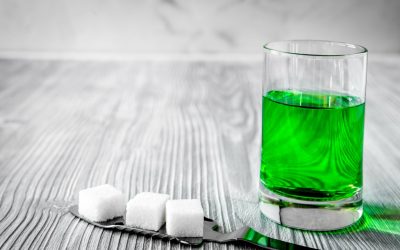The liver, which is responsible for detoxifying the body of alcohol, may prioritise this over maintaining blood glucose levels, leading to hypoglycaemia. Contrary to the belief that eating speeds up metabolism, certain dietary choices can hinder the detoxification process. Consuming junk food or dishes high in saturated fat can strain the digestive system, making it more challenging to eliminate alcohol from the body. Similarly, sugary snacks can disrupt blood sugar levels, prolonging the effects of a hangover. The side effects of alcohol consumption, such as dehydration, cognitive impairment, and nausea, can leave you feeling tired and irritable the next day. Studies found that people who slept less after a night of drinking tended to experience worse hangovers than those who got more sleep.
Benefits of Flushing Alcohol From Urine
Staying hydrated by drinking plenty of water, herbal teas, or electrolyte-rich fluids can reduce symptoms such as headaches and fatigue. Eating iron-rich foods can provide energy and help alleviate the effects of alcohol Alcoholics Anonymous consumption. Additionally, consuming probiotic-rich foods can aid the digestive system’s recovery.
- Body mass index (BMI) is another factor that affects the rate at which alcohol is eliminated from the body through urine.
- As you age, alcohol remains in your system longer because your body becomes less efficient at metabolizing it.
- However, drinking water can help flush alcohol to the liver, and may slightly speed up the metabolization process.
- It is important to note that there is no way to speed up the process of metabolising alcohol.
- Water also helps the kidneys to function properly and supports liver function, encouraging the body to eliminate already broken-down alcohol more quickly.
Eat a Healthy Diet

However, some common methods to detox from alcohol faster include drinking water, taking supplements, or eating particular foods. Alcohol is detectable in urine for up to 12–80 hours after drinking, depending on various factors. While there is no proven way to speed up the process of removing alcohol from the does water flush alcohol out of urine body, staying hydrated is an important part of the detox process. Toxins are flushed out through urine, and hydration keeps the body functioning optimally.
Can Drinking More than the Recommended Amount of Water Help Flush Alcohol Out Faster?
It is important to note that drinking water will not speed up the elimination of alcohol but can help your body process it slightly faster by flushing it to the liver. In addition to hydration, proper nutrition can also aid in the recovery process. Eating before, during, or after consuming alcohol can help to absorb some of the alcohol in the stomach and slow down the absorption of alcohol into the bloodstream. Carb-heavy, greasy foods are commonly consumed to help «sober up,» but they do not help flush alcohol out of the system. Instead, they may provide a temporary improvement in how you feel, especially if you have been drinking on an empty stomach.
It is important to understand that there is no quick fix to flush alcohol from your system. While you may have heard of home remedies such as drinking water, caffeine, or eating carb-heavy meals, these do not accelerate the elimination of alcohol from your body. Alcohol metabolism must run its course, and the rate is primarily determined by your liver function and ADH levels. Alcohol flushing http://aentbd.com/2024/03/18/oxycodone-oxycontin-roxicodone-xtampza-er-uses-2/ is a condition where the body breaks down alcohol at a much faster rate than normal.

The liver is responsible for breaking down and metabolizing alcohol, and it does so at a relatively steady rate of around one drink per hour. This process cannot be sped up, but there are several things you can do to support your body’s recovery. Replenishing electrolytes through beverages like sports drinks, electrolyte drinks, coconut water, or oral rehydration solutions can help alleviate discomfort caused by electrolyte imbalances.
In addition, certain medications can interact with alcohol and slow down its elimination from the body. Body mass index (BMI) is another factor that affects the rate at which alcohol is eliminated from the body through urine. People with higher BMIs tend to have lower metabolic rates than those with lower BMIs, resulting in slower removal of ethanol from their bodies. Your symptoms may be similar, such as anxiety, headaches, nausea, and sleep disturbance. But hangover symptoms tend to last no more than one day, while alcohol withdrawal can last up to a week or more. While you cannot flush alcohol out of your system faster, there are a few things you can do to help yourself feel better and support your body as it recovers.
As people age, their bodies become less efficient at metabolising alcohol, resulting in slower processing rates. Additionally, those with kidney, liver, or stomach conditions may find it more challenging to process alcohol efficiently. The most important tip for flushing alcohol from urine is to drink plenty of fluids. Drinking plenty of water can help to dilute the concentration of alcohol in the urine, which can help to reduce the risk of a false positive on a urine test.
It is important to note that there is no way to speed up the process of metabolising alcohol. The liver metabolises alcohol at a steady rate, and the only way to remove alcohol from your body is to allow it enough time to do so. On average, the liver metabolises alcohol at a rate of about one drink per hour.

The breakdown and elimination of alcohol cannot be sped up by drinking water, sleeping, or drinking coffee, and neither will a shower sober you up faster. During the detox process, the liver breaks down most of the alcohol, with a small amount also eliminated through urine, sweat, and breath. While the liver typically processes alcohol in about an hour, heavy drinking can overwhelm the liver, leading to intoxication.

